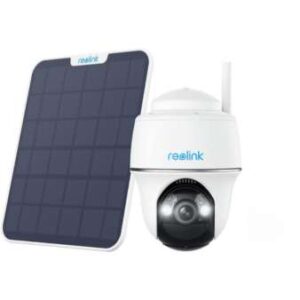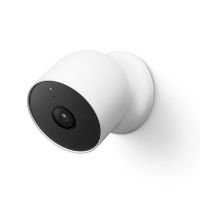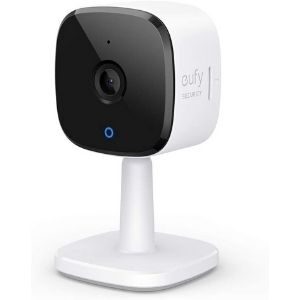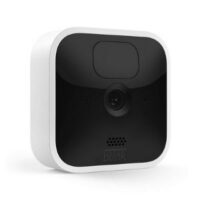The Reolink Argus 3 Pro blew us away during testing by producing some of the best video quality we've seen in a security camera. Argus 3 Pro easily matches the Arlo Pro 4 (our previous security camera pick) in terms of overall video quality thanks to sharing many of the same features like a luminous LED spotlight, 1440p video resolution, and wire-free operation—it even costs about $70 less.
We like the clear daytime and nighttime video this outdoor camera produces. We didn't notice any big distortions in recordings and live footage when we tested it in different lighting levels. There was some lag when watching the live camera feed, but we're confident it was our Wi-Fi connection and not the camera's fault.
As nice as Argus 3 Pro's video looks, the camera's field of view is just 122º—narrower than the 130º average we see on cameras from Arlo and Ring. Compared to Arlo Pro 4's 160º field of view, this camera may require a more intentional placement to capture the best view. Field of view is essentially the only place it falls behind Arlo in terms of video quality.
A few recording options are available on the Reolink Argus 3 Pro: motion, schedule, and time lapse.
One of the first things you'll notice about the Argus 3 Pro's design is a dome-shaped infrared motion sensor just below the camera's lens. This allows the camera to detect motion in complete darkness without relying on video-based motion triggers and infrared LEDs, which would drain the rechargeable battery quickly.
Although we like that you can adjust the motion sensitivity, the camera lacks one of the more helpful motion detection features of competitors: motion zones. We suspect that Reolink nixed motion zones in order to improve battery life—since they rely on video—but it's still disappointing.
We love motion zones because you can set a camera to record only when there's motion within a certain part of the video frame, like a door, window, or sidewalk. This is great for ignoring passing cars or overactive pets patrolling the house.
Despite lacking motion zones, the Reolink Argus 3 Pro's motion recording can differentiate between people, vehicles, and other motion. This is helpful because you can choose to ignore categories to cut down on extra videos and notifications.
You can schedule when your motion recording option activates based on specific times of day throughout the week. This is a great option for synchronizing recording with regular times when you leave the house for work or soccer practice. We also like that you can schedule when the Reolink camera records using person or vehicle detection for more control.
Time-lapse photography isn't a huge security help since it can make identifying different people difficult. But we like how Reolink recognizes that many folks will use security cameras for more creative pursuits by including this feature with the Argus 3 Pro.
Time lapse can be a fun way to track long-term progress like plants growing, clouds moving through the sky, or the construction of your backyard shed.
The Reolink Argus 3 Pro has two video storage options: local storage and cloud storage.
We love that the Argus 3 Pro supports microSD cards up to 128 GB (about $21) when most competitors top out at 32 GB or 64 GB. This is good news considering the camera's 1440p video chews through memory card space a bit faster than typical 1080p models.
Local storage is great because you need only buy a microSD card to use it instead of paying a monthly fee. It also doesn't require an internet connection—the camera's battery lasts longer because it's not always uploading videos to the cloud.
Reolink offers free cloud storage on a single camera and up to 1 GB of video clips for up to a week. This is fairly generous compared to most other free cloud storage from brands like YI and Wyze cameras and which place restrictions on how long clips can be.
The company also sells cloud subscriptions that boost the storage capacity, video history, and the number of cameras. Reolink Cloud's pricing is competitive on plans costing $10 a month or less but only when you have multiple cameras. The plans over $10 a month compare favorably against brands like Arlo and YI but don't match the added features and unlimited camera capacity of Ring and Google Nest.†





















